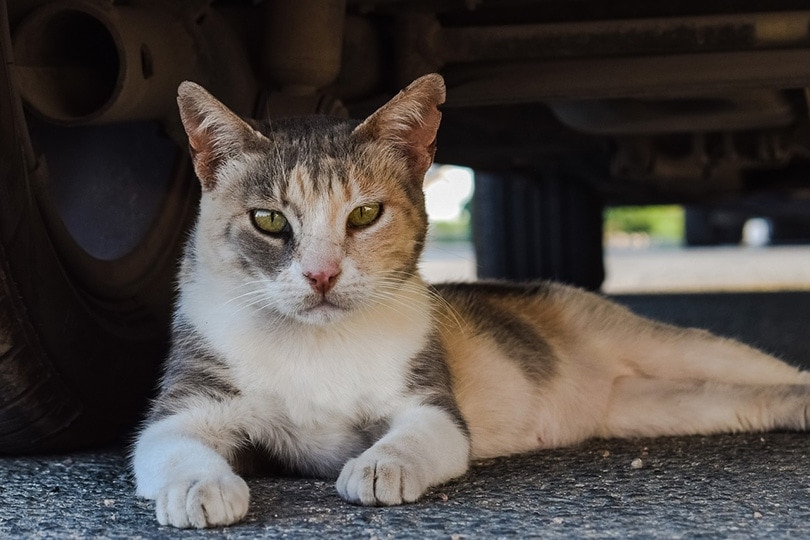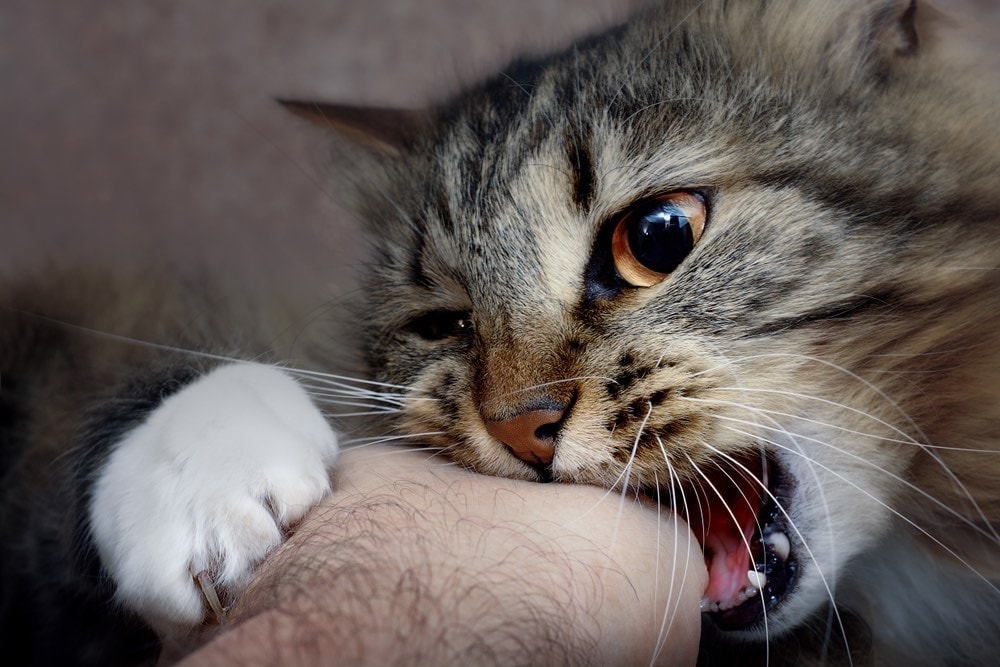How Common Is Rabies in Feral Cats? Vet Reviewed Facts & FAQ
By Adam Mann
Updated on

Feral animals are notorious for carrying rabies, but how much of that fear is true, and how much is unfounded? The truth is that in the United States, feral cats almost never carry rabies thanks to widespread vaccinations. But due to rabies’s seriousness, you still need to treat every feral cat bit like it’s infectious
To help you understand rabies and feral cats a bit better, we’ve highlighted the numbers, the symptoms, and what you need to do if a feral cat bites you here:
Rabies and Feral Cats in the U.S. by the Numbers
No cat-to-cat rabies transmission has been recorded, and no feline strain of the rabies virus is known. However, cats are the most commonly reported domestic animals carrying the rabies virus in the United States. Each year, scientists from the Centers for Disease Control and Prevention (CDC) collect information about cases of animal and human rabies from state health departments and summarize the information in an annual report. The most recent report, dated 2018, collected data from 21,764 cats, of which 241 (1.1%) tested positive. These results are similar to the ones obtained during the previous 5 years. Of these cats, 97.5% were not vaccinated, and most were associated with the raccoon’s virus variant.
Symptoms of Rabies in Cats
If you think your cat might’ve had exposure to rabies, there are a few signs and symptoms to look out for. But keep in mind that not every cat will display signs of rabies right away, so you can’t just assume a cat didn’t have rabies because they weren’t displaying any of these symptoms.
During the first few days of infection, a cat with rabies won’t display very obvious symptoms. According to PetMD, early symptoms of rabies in a cat include weakness, lethargy, a fever, and a decreased appetite.
From there, symptoms progress rapidly. Extreme weakness, leg paralysis, seizures, difficulty breathing, hypersalivation, extreme aggression, coma, and death eventually occur.

Symptoms of Rabies in People
The symptoms of rabies in a person are similar to what a cat experiences, but since you can feel the symptoms, you’re going to notice more.
The first stage of an infection is the incubation period, and it typically lasts from a few days to a few weeks or even months. During this time, you likely won’t present with any symptoms.
Next is the acute stage, which usually lasts anywhere from 2 to 10 days. According to the CDC, symptoms during this stage are similar to the flu, with headaches, weakness, prickling, discomfort, and itching.
These symptoms rapidly progress to cerebral dysfunction, anxiety, confusion, agitation, delirium, hallucinations, insomnia, comas, and eventually death. Once the incubation period is over and symptoms start, rabies almost always leads to death.
How Does Rabies Spread?
Rabies spreads through saliva, meaning there are multiple ways rabies can spread. However, the most likely way for a feral cat to spread rabies to people or other animals is through biting.
If a feral cat scratches you or your pet, it typically won’t spread rabies, although there are other diseases you can get from feral cat scratches.

What to Do if a Feral Cat Bites You
If a feral cat bites you, start by thoroughly washing the affected area with soap and water to clean it out. Cat bites carry a high infection risk, and by thoroughly washing out the affected area as soon as possible, you reduce that risk.
After a feral cat bite, you need to reach out to a medical professional right away. While rabies infections in feral cats are relatively rare because the infection is almost fatal after the incubation period, it’s important to treat every feral cat bite like it came from an infected cat.
According to John Hopkins Medicine, it’s possible you might need antibiotics, a tetanus booster, or a rabies vaccine. Leave it up to the medical professionals though and see what they have to say about your specific situation.
Final Thoughts
While it’s unlikely that a feral cat in your area is carrying rabies, it’s not a possibility you can rule out. If a feral cat bites you, your pet, or another family member, you need to seek medical attention right away.
The good news is that you shouldn’t have to worry about rabies, but you don’t want to take any chances with such a serious disease.
Featured Image Credit: dimitrisvetsikas1969, Pixabay












